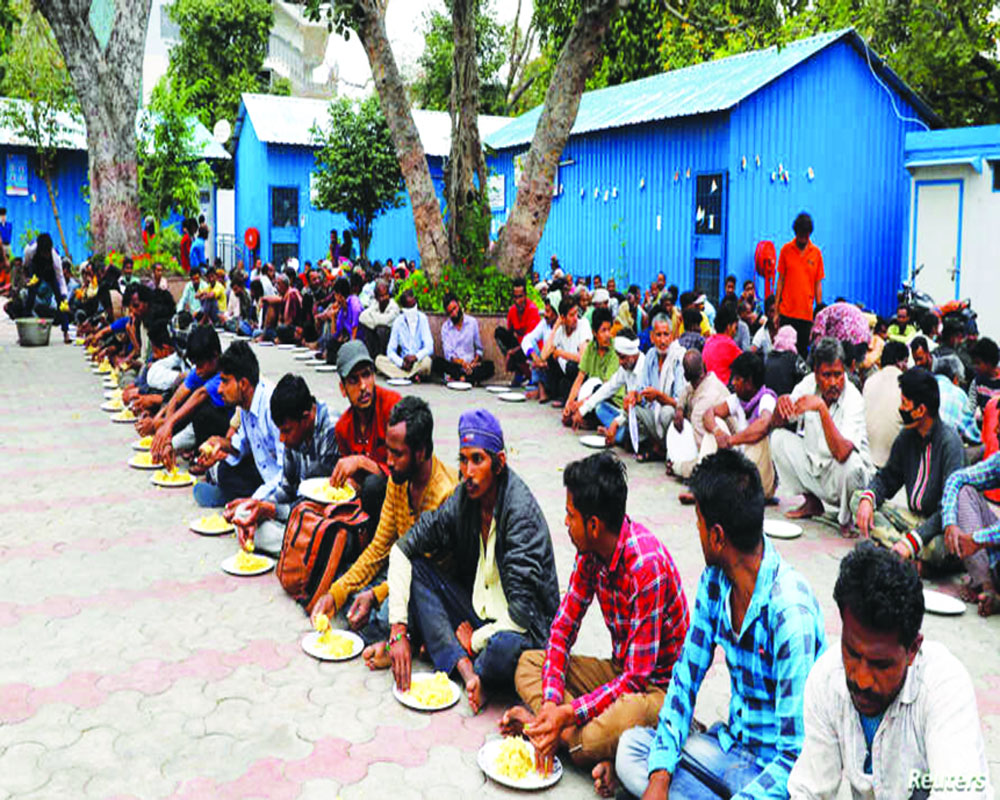They may not have the halo but some CMs are coming up with effective systems for managing the virus spread
This is a chilling reality. Fifteen lakh international travellers arrived in India between January 18 and March 23. And the Government is trying to find all of them with respective States to gauge the extent of infectivity they have set off. There is no doubt about the whole-heartedness of efforts by the Centre in tackling the COVID-19 and attempting a national lockdown on a colossal scale, the biggest in the world, to build a culture of social distancing as the only preventive. The economic relief package and foodgrains for the poor may still not be enough but India is a huge country with several challenges and this is the time when our federal structure is being tested. And while it is Prime Minister Narendra Modi who gets the national attention, the work done by some Opposition Chief Ministers in their respective States proves that unitedly each could learn from the other and forge a united front with the Centre. In the process, we are developing innovative models of crisis management that may hold us in good stead to manage not only this wave of the virus but future pandemics as well. One such Chief Minister is Kerala’s Pinarayi Vijayan, heading a State that has not only tamed the deadly Nipah virus but confined, choked and controlled it. Kerala’s model of testing, finding, isolating and contact-tracking with a round the year follow-up surveillance is paying off results. Even before a Central package, the Vijayan Government announced a Rs 20,000 crore relief measure and is the first to give some dignity to migrant labourers, who are homeless and without food post-lockdowns, by officially designating them State guests. Not only that, having learnt hard lessons in disaster management during the floods, Kerala is also opening community kitchens and shelters for the displaced. This inclusivity is not just a tokenism or a political plank to be used at opportune moments; the Vijayan Government has always tried to integrate migrant workers, paying them three times the minimum wage in other States, providing for their children’s education and enrolling them for several State schemes. The Arvind Kejriwal Government in Delhi has eased lockdown pressures, although the city is one of the hotspots of COVID-19 in India, and created a three-layered response model of preparedness. It has allowed e-tailers, 24X7 operation of shops selling essential provisions and medicines and is converting abandoned buildings as either shelters or quarantine areas. It even has a graded action plan for the spike in cases, from 100 to 500 and upwards, and has roped in voluntary services of private doctors to stem the tide once the cases rise. The four lakh community kitchens in school premises for the poor will hopefully stem the exodus of daily wagers. The Gehlot
Government in Rajasthan has set an example in Bhilwara, the State’s epicentre of the virus, by locking it down completely before the national diktat, aggressive contact tracing and now possibly testing every citizen in clusters. Captain Amarinder Singh in Punjab, the State which sees high international arrivals, completely cut it off before any other State had.
Meanwhile, Mamata Banerjee in Bengal, true to her style, took to the streets, distributing masks and drawing circles in public markets to educate people about the norms of social distancing. She has pledged no food shortage and is preparing for the surge with makeshift medical facilities. Odisha Chief Minister Naveen Patnaik may have been extremely low-key but has been one of the first to set up a network of quarantine and care centres, his post-flood management holding him in good stead. In fact, going by reports, States and Union Territories with more testing centres are reporting higher cases of incidence. In the end, this is a big test of endurance and leadership. If we pass this, then we might just go back to cooperative federalism than a competitive one. Welfarism could be shared.


























